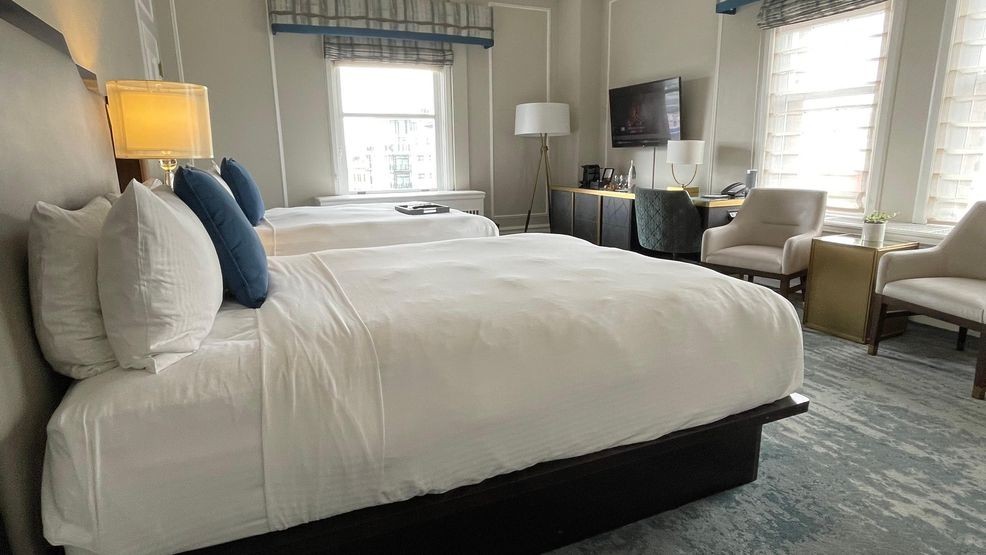How to Book a Great Hotel Stay: Avoid Social Media Traps and Read the Fine Print

Understanding the Challenges of Hotel Booking
In today’s digital age, hotel booking sites offer a wealth of information to potential travelers. From guest ratings and 3D room tours to tools that let you filter properties by features such as neighborhood or pet-friendliness, the options seem endless. However, despite these advancements, many people still find the process of booking a pleasant stay frustrating and often end up with disappointing experiences.
The problem lies in the reliability of the information available. Guest reviews and star ratings, which are supposed to guide travelers, often fall short. Platforms like Booking.com, Expedia.com, and Hotels.com use complex star-scoring systems that can be confusing. Additionally, many reviews appear to be written by inexperienced users who may not have a balanced perspective. The issue is further compounded by the rise of AI-generated fake reviews, which can distort the overall perception of a hotel.
The Influence of Social Media and Influencers
Another factor contributing to the confusion is the influence of social media. Hotel websites are filled with glamorous photos that make even small rooms look luxurious. Travel TikTokers and Instagrammers often create visually appealing content, but their posts may not always reflect the reality of a stay. These influencers sometimes receive free stays or compensation in exchange for positive reviews, leading to an unbalanced representation of a property.
Annie Fitzsimmons, author of "100 Hotels of a Lifetime," highlights this issue, noting that influencers tend to focus on the positives and rarely show the negatives. This lack of transparency makes it difficult for travelers to get a true sense of what to expect.
Personal Experiences and the Importance of Reviews
Personal experiences often highlight the discrepancies between online representations and real-life stays. For instance, one traveler recently stayed in a chain motel with a broken elevator, which was a major inconvenience for elderly guests. Another time, a historic B&B that appeared well-reviewed online turned out to have dusty rooms, saggy mattresses, and outdated decor.
These experiences underscore the importance of carefully evaluating hotel reviews. When reading reviews, it's essential to compare five-star scores with one- and two-star ratings. Middling reviews can provide a more balanced perspective. Pay attention to comments about amenities that matter to you, such as noise levels if you're a light sleeper or the availability of a swimming pool for children.
Tips for Finding a Great Stay
To navigate the complexities of hotel booking, consider the following tips:
-
Take Hotel Reviews with a Grain of Salt: Look beyond the star ratings and read through both positive and negative reviews. Focus on comments that relate to your specific needs. If a hotel has multiple negative reviews about the same issue, such as uncomfortable beds or unfriendly staff, that could be a red flag.
-
Read the Fine Print and Scrutinize Photos: Check the hotel’s website and photos carefully before booking. Don’t assume that a room includes basic amenities like a hair dryer or coffee maker unless they’re explicitly stated. Review photos of the room type you’re considering, not just the luxury suites.
-
Look for a True Hotel Critic: Be wary of glowing social media posts and booking site reviews. Some content creators may have a financial incentive to promote certain hotels. Seek out sources that provide honest, critical reviews, such as The Telegraph, Rick Steves, Frommer’s, or The Michelin Guide.
-
Map It Out Before Booking: Location is often the most important factor when choosing a hotel. Use booking sites to filter properties by neighborhood or proximity to public transit. Check what else is nearby to avoid staying in areas with undesirable views or surroundings.
-
Book with the Hotel: Research shows that most travel-booking sites and hotel websites offer identical prices. This is because third-party sites are often owned by large conglomerates that require consistent pricing across platforms. Booking directly with the hotel can sometimes lead to better room options or free upgrades.
-
Don’t Be Trapped by Brand Loyalty: While hotel chains may offer a sense of consistency, the quality of franchises can vary widely. A well-known brand in one location may not deliver the same experience in another.
-
Find Your Tribe: Special-interest hotel consortia, such as Historic Hotels of America or Beyond Green, cater to specific preferences and can help you find accommodations that align with your tastes.
-
Use a Travel Agent: Travel agents can often secure better deals and upgrades at high-end properties. Since they are paid by hotels, their services are typically free. Many travelers rely on their expertise to ensure a smooth booking process.
By taking these steps, travelers can improve their chances of finding a great room at a fair price, despite the challenges of navigating the modern hotel booking landscape.
Post a Comment for "How to Book a Great Hotel Stay: Avoid Social Media Traps and Read the Fine Print"
Post a Comment